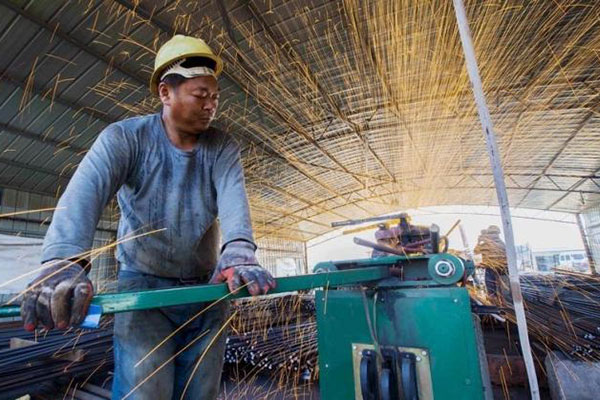 |
|
A labourer cuts steel bars at a railway bridge construction site in Lianyungang, Jiangsu province, September 12, 2015.[Photo/Agencies] |
President Xi Jinping urged on Monday to "resolutely push forward supply-side structural reform" as the world's second-largest economy still faces strong headwinds, reflected by its easing economic indicators for April.
The reform is the key to the overall and long-term well-being of the Chinese economy, he told a meeting of the Central Leading Group on Financial and Economic Affairs. The Chinese economy faces cyclical problems as well as challenges of scale, but the structural and supply-side problems are the most serious, he was quoted by China Central Television as saying.
"The main direction (of the reform) is to reduce ineffective supply, increase effective supply, and make the supply structure more fitting to the demand structure," he said.
The core of the reform is to push the reform of State-owned enterprises, accelerate the transformation of government functions, and deepen fundamental reforms, such as those in the pricing, fiscal and taxation, financial and pension fields, the president added.
The market and government should both better play their roles to balance the reforms, he said.
Xi made the comments following publication of an article by People's Daily on May 9 citing an "authoritative figure" who analyzed the causes of China's economic woes and offered the prescription of supply-side reform.
On May 10, People's Daily published the text of a speech that Xi delivered to principal ministerial and provincial officials in January, when he had said that China's economic future will hinge on supply-side structural reforms.
"Xi's reiteration of supply-side structural reform reflects policymakers' judgment of the current situation," said Dong Yuping, an economist at the Chinese Academy of Social Sciences. "Supply-side structural reform is the key to solving the problems facing the economy," he told China Daily.
Supply-side reform, which should focus on "allowing the market to play a decisive role", must be pushed to add to the long-term vitality of the Chinese economy, said Dong.
Niu Fengrui, director of the Institute for Urban and Environmental Studies at the Chinese Academy of Social Sciences, said China has yet to effectively implement the supply-side reform agenda. "That's why Xi has repeatedly called for strengthening of efforts to push the reform," Niu said.
China's economic growth dipped to 6.9 percent last year, the slowest in 25 years. Although economic indicators showed a mild rebound in the first quarter, the April data show the momentum of recovery has eased.
Contact the writers at [email protected]
